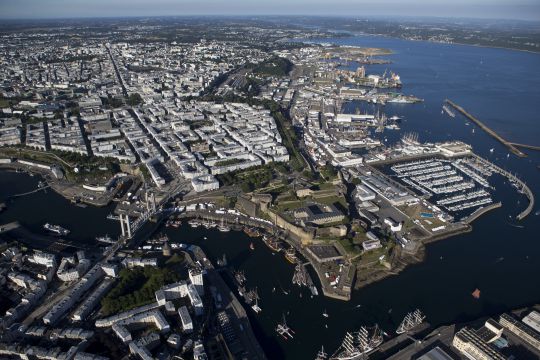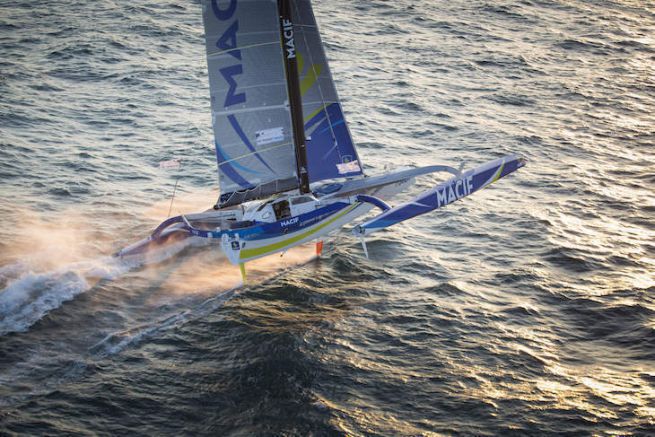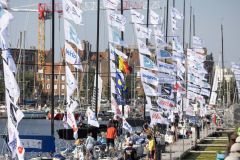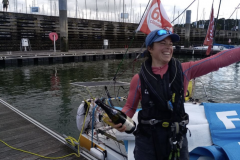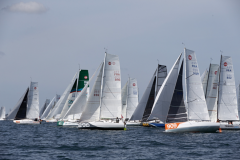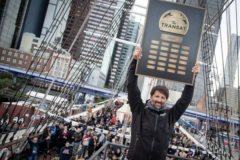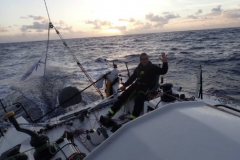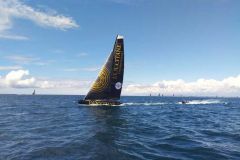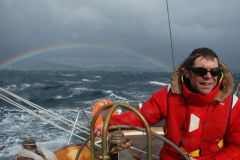The history of this transatlantic single-handed race
The Transat was created in 1960 by a handful of sailors who wanted to cross the Atlantic alone in record time. At the time, this sailing race was called "Observer Single-handed Trans-Atlantic Race", or OSTAR, and linked Plymouth to New York. From 1964 to 2000, the arrival was given to Newport, then in 2004 and 2008, Boston was chosen as the arrival city.
It is organised every four years until 2008, but 2004 marks a turning point for the transatlantic solo race. The latter became part of the OC Sport Pen Duick organisation and split in two with a race reserved exclusively for professional skippers. The traditional OSTAR, open to amateurs, will be organised by the Royal Western Yacht Club the following year.
After the 2008 edition, which will be dedicated to Loïck Peyron (with a return to New York), it will take eight years - 2016 - for the English Transat which will host the Ultimates that year, among other innovations. It will be won by François Gabart on Macif in 8 hours, 8 days and 54 minutes.
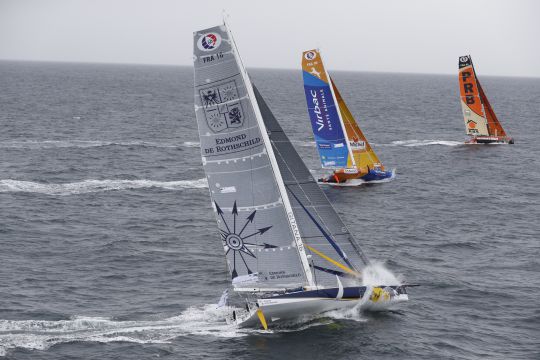
A new edition with a move to France
The oldest of the solo transatlantic transatlantic races will therefore have changed its name or port of arrival, but never its concept: "One man, one boat, the ocean". It will have seen the biggest names in ocean racing lining up on the starting line, such as Sir Francis Chichester, winner of the 1st edition, Eric Tabarly, who will win it twice (1964 and 1976) and Loïck Peyron three times (1992, 1996 and 2008). Of the 14 winners, 11 are French.
And this may have influenced the organization in organizing the departure of The Transat 2020 from Brest. "France and more particularly Brittany are today the undisputed strongholds of ocean racing, especially in solo racing" explains the organization. The port city also has all the infrastructure and capacity necessary to host the race.
